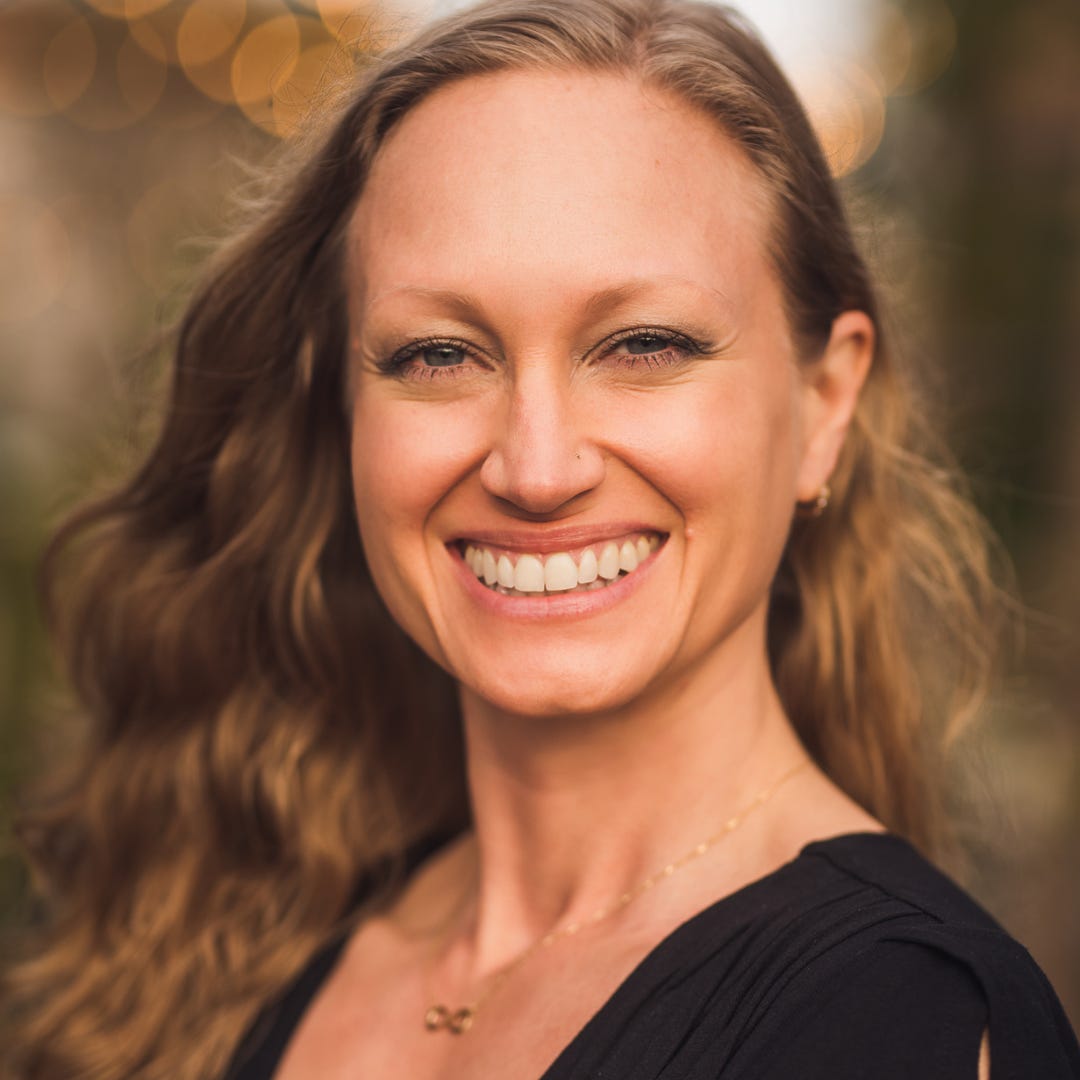UPDATE: This interview has concluded, and the public version is now available starting with Q&As 1–4:
Welcome to the second edition of Dissident Dialogues! Paid subscribers enjoy immediate access to this interview as it’s unfolding in real-time (“rolling” means it’s a work in progress). I will publish each new Q&A as we progress through our conversation. Once we reach the conclusion, I will make the final version available to the public.
Meredith Miller
I chose Meredith Miller for the next installment in Dissident Dialogues not only because she is one of my favorite long-form writers whose crisp psychological insights have helped me understand the emotional manipulation, coercion, and abuse that have occurred during the Reign of COVID Terror but also because I think she may be capable of helping me (and by extension, you) comprehend the greatest mystery plumbed in my work—namely, how do kindhearted, well-intentioned individuals become ardent advocates for and enforcers of totalitarianism? I encourage you to sign up for her mailing list if you aren’t already on it:
Meredith Miller is a holistic coach, author, and speaker who helps people self-heal after narcissistic abuse and other toxic relationships. Her mission is to bridge the gap between trauma and purpose. She teaches mindsets and tactical tools to help with recovery.
In 2020, Meredith began speaking out about the psychological abuse patterns—from the micro to the macro—she was observing in the New Normal world. Her holistic perspective on the global events underway can help us understand the baffling behavior of others while offering inner solutions for addressing our collective and individual trauma.
Q&A #1
MAA: You are a holistic coach with a focus on trauma, narcissistic abuse, and toxic relationships. At your Inner Integration website, you confide that you are “a survivor of over three decades of psychological and sexual abuse.” And yet you radiate joy and exemplify your mission of bridging the gap between trauma and purpose. Can you take us through your journey from trauma to purpose? How did you bridge that gap in your personal life before you began to help others do the same?
MM: For decades, I lived as a captive. The word captivity might evoke an image of physical confinement. However, captivity can also be a state of consciousness, and one that can endure long after a person has left a relationship or situation involving abuse.
Psychologically, neurologically and spiritually, I was trapped in that perception of reality. That’s why I call it a psychoneurospiritual state of captivity. It felt like there was no way out. Even after I would leave abusers, I couldn’t shake off that state. Now, looking back and observing from a very different level of consciousness, I realize I must’ve thought that was just normal life because it was all I had known.
A person who married into my family and eventually found out about the pedophilia of my grandfather and one of his brothers said, “All families are dysfunctional, but some families are really fucked up.” My family was the latter. Though on the surface, you might see something that more resembled a Norman Rockwell painting.
The worst part about the abuse is when people pretend it didn’t happen. When I learned the term gaslighting, that’s when my whole life started making a lot more sense.
I came from a family where the legacy of abuse was passed down, generation after generation. It was mostly unspoken, as if the silence about the abuse somehow meant that it didn’t happen or it wasn’t real. It was impossible for me to communicate this to anyone, or even articulate it to myself, because it was disguised as normality.
Often when people hear the word “abuse,” they think of a battered woman. But that’s just one face of abuse. In the case of physical abuse, the victim can show bruises and scars as proof that something happened. Some forms of abuse are more overt and obvious. Other forms of abuse are more like death by a thousand cuts. Invisible abuse is much more subtle, hidden, and covert. It’s often disguised as love and kindness. This is why it’s called “crazy-making.”
If you try to talk to other people in the abusive family system about what’s going on, you’ll usually end up feeling like you’re the only one with a problem. When people are dependent on abusers and the abusive system, they will defend the abusers and the system, minimizing or normalizing the abuse. That’s called enabling.
It’s a lot like being in a cult. It’s very isolating because other people don’t understand it, including most therapists and psychologists. It’s not usually part of their training.
When you’re a kid and you sense that something is off, there’s no way out. You have to find a way to survive within your environment, so you develop dysfunctional behaviors to cope with the stress, and that develops into long-term relational patterns in adulthood. For me, that was people-pleasing and codependency. I learned that it was easier to comply, but I had no idea how much that would cost me in the long run.
Keep reading with a 7-day free trial
Subscribe to Margaret Anna Alice Through the Looking Glass to keep reading this post and get 7 days of free access to the full post archives.








